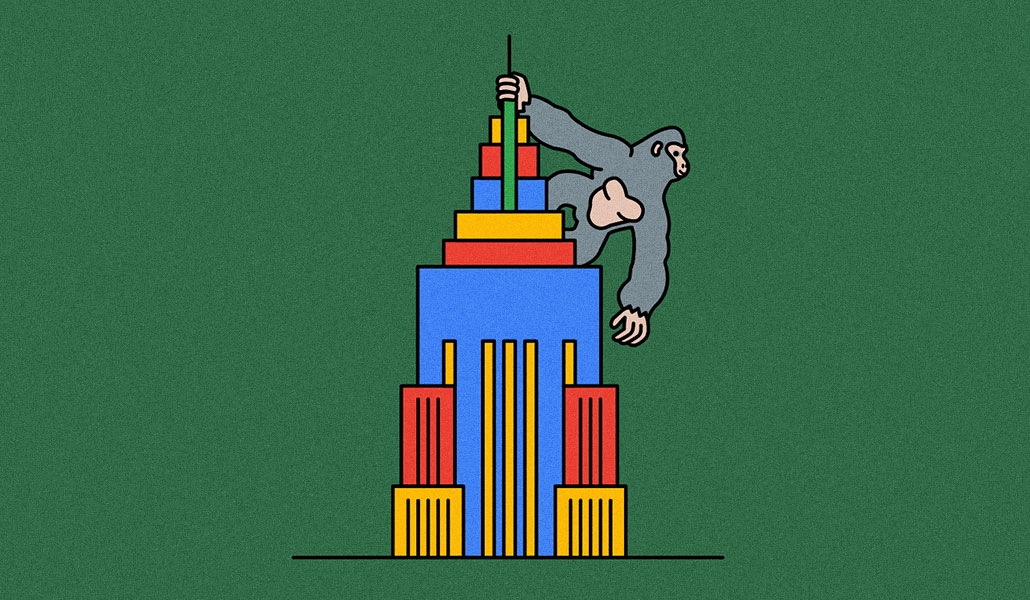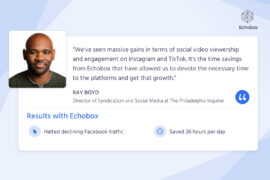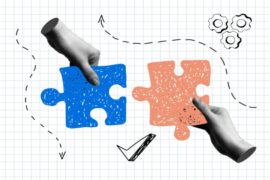In this week’s Roundup: Facebook lands another blow against the news industry with end of the News tab, the DOJ’s new anti-monopoly lawsuit against Google is big and will AI find aliens?
News
Following its decision to block news content in Australia and Canada and the ending of payments to US publishers, Nicole Kobie of Wired writes that Facebook’s News tab will be discontinued in the UK, France and Germany.
Meta has said that the tab will be removed by December and revenue-sharing deals with publishers will not be renewed.
The decision represents yet another rejection of the news industry as the company faces growing pressure in countries around the world to compensate publishers for their content.

The US Department of Justice is alleging that X breached the conditions of a government order to strengthen its data security and privacy practices.
The DOJ claims, as The Guardian’s Dan Milmo writes, that in the chaotic early days of Elon Musk’s move-fast-and-break-things tenure as CEO, insufficient attention was paid to maintaining the higher standards of security mandated in an earlier order by the FTC.
In June, Musk moved to get rid of the agreement. These allegations are in response to those filings.
Former employees testified that in his haste for change, Musk was less concerned than he ought to have been with, among other things, who was handling X’s data. Musk, testified former director of security engineering, Andrew Sayler, “was requesting us to grant access to third parties that had not undergone our regular vetting process.”
Analysis

Alphabet is in trouble yet again. Google Analytics is being held to violate GDPR requirements by a growing number of European countries, YouTube has been accused of collecting data on children, Google has been sued by California for deceptive practices around location tracking (the case has recently settled for $93m) and now, a lawsuit against Google brought by the US DOJ has finally made its way into court.
The case alleges monopolistic practices by Google with regard to its search engine as well as other services.
Lawyers for Google have claimed that it is not competition per se that has been affected by Google’s dominance, just Google’s competitors. Under this theory, other tech companies simply decided to focus on other things, leaving Google free to corner the search market. This, they argue, does not violate any antitrust laws.
Digiday’s Marty Swant explains more about the suit and outlines the potential ramifications.
There are few companies that have shaped the internet more than Google. But as the lawsuits pile up and search habits change, Google’s place in the internet landscape looks more uncertain.
The Verge’s Ryan Broderick, gives a potted history of how Google Search played a formative role in the development of the internet as we now know it, and how it might have lost its way.
AI
“What is love?” That’s the question that preoccupied 90’s Eurodance philosopher Haddaway. But Haddaway is just the most catchy of a long lineage of thinkers and artists dealing with the same issue.
It’s a question which, as Vox’s Alissa Wilkinson asserts, also informs a certain strand of science fiction which asks “whether artificial intelligences are capable of loving us, whether that love is real, and if we can, should, or must love them back.”
In the past few years, with the development of new chatbots of unprecedented sophistication, asking whether AIs can love, or whether we can truly love AIs has become ever more pertinent. But, argues Wilkinson, the other, and more pressing, side of the dialectical coin may well be, “can AI hate us?”
If you’ve seen that creepy little gray fella presented to Mexican Congress as evidence of extraterrestrial life, you’ll no doubt be delighted to hear that NASA is turning the power of AI onto the search for ET.
Specifically, Andrew Paul at Popular Science reports that an independent report commissioned by NASA recommends “leveraging NASA’s expertise and public trust [good luck] alongside artificial intelligence to investigate unidentified aerial phenomena (UAP) on Earth.”
NASA bigwigs repeatedly asserted that the report could find no evidence that recorded UAPs were of non-human origin. They also noted that with respect to using AI, “UAP analysis is more limited by the quality of data than by the availability of techniques” to evaluate the data. So if you do take a snap of a UFO, make sure it’s HD.


/cdn.vox-cdn.com/uploads/chorus_asset/file/24874202/236755_When_Google_ruled_the_world_MRohn_001.jpeg)




